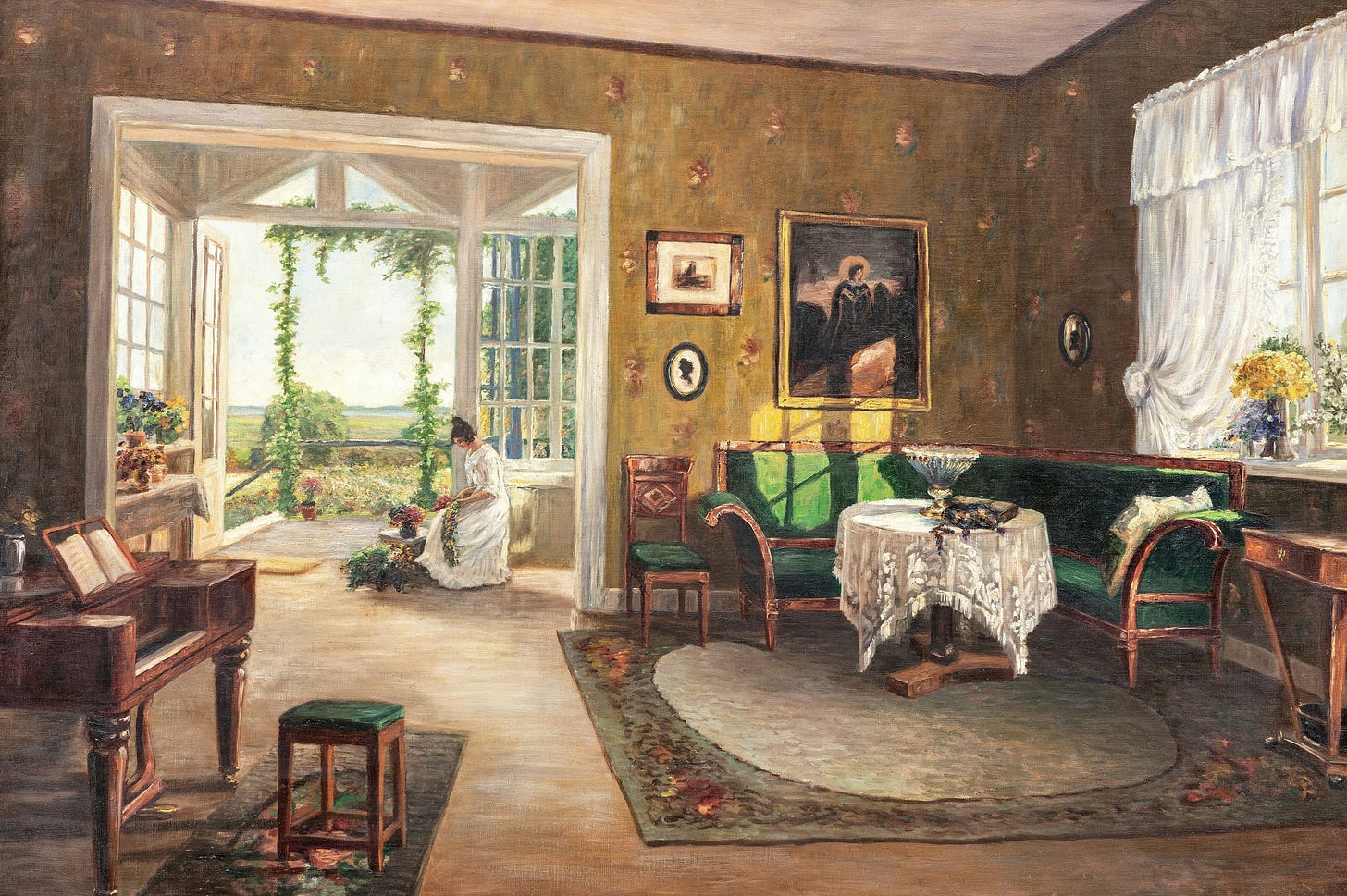How to Combat Burnout
SA Episode #15
Q: How can we come up with a creative project that occasionally overwhelms the mind but infinitely edifies the soul? This is what I briefly write about today, although what I bring to attention is a hypothesis, a random bet, rather than a conviction.
Don’t dream horizontally; dream vertically
Don’t dream about making money—horizontal thinking—but about creating value and legacy or designing a lifestyle full of love, art, deep work, and sacred leisure—vertical thinking. You want a deeply effervescent life; a life bursting with joy, beauty, risks, and courage. Suffering is inevitable. You want depth, not breath.
To dream vertically doesn’t translate into a busy or chaotic life. On the contrary: slow living is what truly gives you the space, energy, and clarity to go all in on your wildest projects.
Horizontal dreaming is about more—maybe more money, more status, more things. It’s linear, mimetic, and external.
Vertical dreaming is about elevation: ascending into meaning.
Everyone needs a dream
Everyone needs a mission. Everyone needs a project that improves the world. YOU need that. When you’re obsessed; when you have something to work on—you get out of your head.
Perhaps the root of our misery lies in the absence of true struggle.1 How many of us choose to work because our ambition springs from a boundless desire to manifest ourselves spiritually? How many of us start projects, not strictly as a result of financial considerations, but because they are genuine expressions of who we want to be? Are you able to identify five true artists, scholars, or scientists among us? Can you even name one polymath that’s not dead? We work because we simply provide a “service”—take a look at how obsessed Dostoevsky, Nietzsche, or Kafka used to be. Do you think they had a “job” or “hobby” or rather a mission to fulfill? Just skim through Leonardo Da Vinci’s notebooks; notice in what frame of mind he was, and how foreign this is from our “artist” models.
Through creation, you can experience the sacred and the timeless: only people gifted with great artistic sensitivity and a capacity for mystical contemplation can pull this off. Creation offers you the chance to taste what I like to call spiritual happiness. You may only access it after you’ve invested years and years into your craft with no goal other than the practice itself. Spiritual happiness grows and expands in a paradoxical effervescence, giving you wings and powers to both wrestle with demons and dance with angels.
What a privilege to be exhausted by a challenge you chose for yourself.
Vacations won’t fix you
Endless vacations in exotic places won’t fix your burnout. You need to update your religious configuration; you need to kickstart an emotional renaissance.
It’s impossible to combat burnout or mental fatigue through rest only. You need wild curiosity, aggressive spiritual effort, and intellectual vagabonding.
Maybe you’re unhappy because all of your “hobbies” are nothing more than glorified consumption. You won’t find God in $15K ski vacations in the Swiss alps, retreats in Bali, premium camera gear, or fancy coffee machines. You need to create. You need to build.2
Q: Do you know why birds sing just before dawn?
Some scientists believe it’s to tell their mates that they made it through the night—thus saying: “I’m still here!”
What if that’s why we “sing” too? In other words: why we write, paint, create art, and build things we’re proud of—as a way of saying: “I made it! Through suffering, challenges, or simply day-to-day stress...I’m still here!”3
Almost any form of suffering that hardship, or illness that leads to creation is health of the highest order disguised as bad luck.
Emil Cioran talked about struggling with insomnia all of his life—yet this is precisely why his books have so much drama. He felt everything intensely. Daily life was a crusade. Extreme lack of sleep turned him into one of the most prolific writers of the 20th century. Similarly, the most significant moment in Nicolás Dávila’s education perhaps took place at the age of 16, when he fell ill with pneumonia and was bedridden for 2 years. During this prolonged period of outward inactivity, “he focused all of his energies on reading and the study of classical languages,” Ramon Elani recounts. I speculate this period had the greatest impact on his stellar writings on culture, modernity, religion, and politics.
If you’re healthy and well off, don’t fall into the ridiculous trap of romanticizing illness or exaggerating your challenges; use this information to build up more gratitude. And choose a challenge that edifies the soul. The subtle nuance is that you want to be obsessed but not too ambitious. Obsession here translates into a relentless immersion into the present moment yet devoid of any material expectations; being (too) ambitious means being consumed by external achievements, success, fame, what you can’t control. Obsession is what you can control.
As a final Note to Self—God forbid, if hardships happen to visit you, don’t allow them to destroy your zest for life. Dare to be antifragile. Turn them into gold and profit.
Q: Are you still here? Do you sing?
H/T Erik Rittenberry
H/T Will Manidis
H/T Jeff Goins





Just what I needed to hear today🤌🏻
The antidote to the antidote. Grazie amico mio.